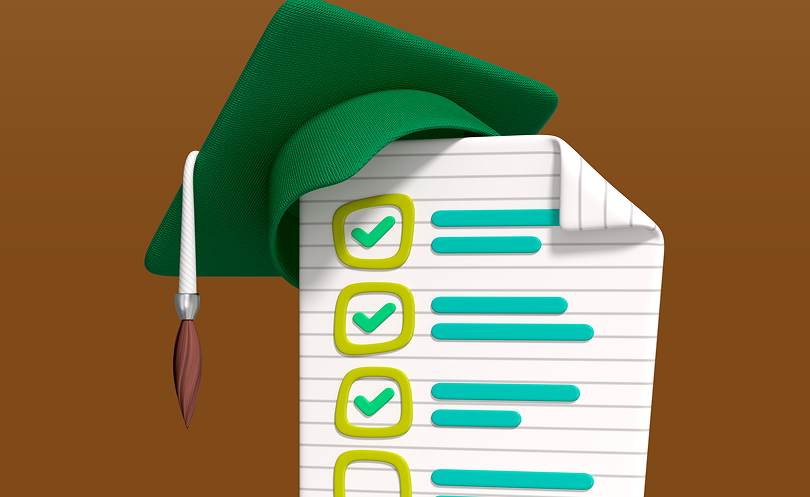

Profile Evaluation
At Scholars 360, Profile Evaluation & Counseling is a 360° discovery process that looks beyond marks to map your true potential — academics, skills, work experience, interests, and life goals. We blend data (course fit, employability stats, funding options) with human mentorship so your application tells a compelling, honest story. Our counselors act like an academic GPS: they identify your starting point, highlight obstacles, and plot the clearest route to target programs and countries. Instead of chasing prestige, we match you with the universities and courses where you will grow, get work experience, and succeed professionally. The outcome is a personalized roadmap — realistic, strategic and focused on outcomes (admissions, scholarships, internships and career pathways).
Frequently Asked Questions
-
I have backlogs. Can I still study abroad?
Yes! Backlogs don’t automatically mean rejection. Many universities abroad focus on your overall profile, recent performance, and skills, not just past setbacks. With the right SOP and university choice, you still have strong chances of admission.
-
I have a 1–2 year education gap — will that hurt my application?
Not at all! Universities abroad understand that life doesn’t always follow a straight line. If you’ve used the gap for work, internships, online courses, or even personal commitments, it can actually add value to your profile. With the right explanation in your SOP, your gap becomes a story of growth — not a setback.
-
My grades are low… is my dream of studying abroad over?
Not at all! 🎓 Universities know that numbers don’t define potential. If you showcase your skills through projects, work experience, or a strong personal statement, a low GPA can’t stop you from getting accepted.
-
I don’t have IELTS/TOEFL yet. Can I still apply?
Yes! Many universities abroad offer waivers, conditional admissions, or accept alternatives like Duolingo or MOI (Medium of Instruction) certificates. You can start your application now and provide test results later.
-
I don’t have much work experience. Will that hurt my chances?
Not necessarily! For most undergraduate and many postgraduate programs, work experience isn’t compulsory. You can highlight internships, projects, extracurriculars, or volunteer work to strengthen your application.
-
I’m from a middle-class family. Can I afford studying abroad?
Absolutely! 🌍 There are scholarships, grants, part-time jobs, and affordable countries where education costs are lower. With proper planning, studying abroad can be financially manageable.
-
Do I need a perfect SOP/LOR to get admission?
Don’t worry! Your SOP and LOR don’t need to be “perfect,” but they must be authentic, clear, and aligned with your goals. Admissions officers value honesty and motivation more than fancy words.
-
Can I switch fields while applying abroad?
Yes! Universities abroad often allow flexibility. If you justify your career shift through your SOP, skills, and future goals, you can successfully move to a new field of study.

About Course & University Selection
Choosing the right course and university is one of the most important steps in your study abroad journey. It’s not just about rankings — it’s about finding a program that aligns with your career goals, skills, and future opportunities. Factors like course content, teaching style, internship opportunities, cost of living, post-study work rights, and location all play a huge role. The right choice can open doors to global careers, while the wrong one may limit growth. With expert guidance and thorough research, students can shortlist universities that fit both their academic profile and long-term aspirations.
Frequently Asked Questions
-
Should I choose a course based on my passion or job market
demand?
Ideally, a balance of both. If you pick only passion, you might struggle with career opportunities. If you pick only demand, you may lose motivation. The best fit lies where your interests overlap with future industry needs.
-
How important is the location of the university within a
country?
Very important! A university in a tech hub, finance capital, or industrial city often provides better internships, networking, and job opportunities than one in a remote location — even if both have similar academic quality.
-
Do course structures really differ that much across
universities?
Yes! The same course (like MBA, Computer Science, or Data Analytics) can have different modules, teaching styles, and practical exposure. Always check the curriculum, not just the course name.
-
Can choosing the wrong university affect my post-study work visa
chances?
Definitely. Some countries only allow visa extensions or work rights if you graduate from a recognized or accredited institution. Always verify if your chosen university qualifies for these benefits.
-
Should I prefer a big, globally known university or a smaller,
specialized institution?
It depends on your goals. A big-name university gives brand recognition, while a smaller niche university can provide personalized attention and deeper expertise in your chosen field.
-
How much do alumni networks really matter when selecting a university?
A lot! A strong alumni base can open doors to hidden job markets, mentorship, and referrals that official placements may not cover. This “invisible advantage” is often underrated by students.
-
Do teaching methods (research-based vs. practical learning) vary across
countries?
Absolutely! For example, UK programs are often intensive and research-focused, while Canadian and Australian universities may emphasize practical training and internships. Matching your learning style to the system is crucial.
-
Can the city’s industry ecosystem shape my career more than the
university itself?
Yes. Studying computer science in a city with a booming tech industry may give you more real-world exposure and job leads than attending a higher-ranked school in a less connected city.
-
Should I look at future migration/PR rules when shortlisting my course?
If your long-term plan is to settle abroad, then yes. Some courses are directly linked to PR eligibility lists in countries like Canada or Australia, which can significantly impact your future.
-
Is it worth considering universities with emerging fields (like AI,
climate tech, or digital health) over traditional programs?
Definitely. Future-focused programs in fast-growing industries may provide more career opportunities than saturated traditional fields, even if the university itself isn’t in the “top 50.”
-
How do student support services (career offices, mentorship, cultural
support) affect my success abroad?
Strong support services can make a huge difference in adapting, networking, and job hunting. Sometimes a mid-tier university with excellent student support outperforms a top-ranked one with minimal guidance.

Application & Documentation
The application process for studying abroad involves much more than just filling out forms. Your Statement of Purpose (SOP), Letters of Recommendation (LORs), admission essays, and supporting documents play a vital role in shaping how universities see you. These documents are not just formalities — they are your chance to tell your story, highlight achievements, and explain challenges in a compelling way. A strong SOP can show your motivation, a well-structured LOR can validate your skills, and carefully prepared essays can make you stand out from thousands of applicants. Expert guidance ensures that your application is error-free, authentic, and aligned with what each university expects. This attention to detail can be the difference between acceptance and rejection.
Unique FAQs on Application & Documentation
-
Can I reuse the same SOP for multiple universities?
Not a good idea. Each university looks for different qualities, so a “copy-paste SOP” feels generic. Instead, keep a core SOP draft but customize sections like program fit, faculty, and goals for each application
-
Do universities check for plagiarism in SOPs and essays?
Yes! Many institutions use plagiarism detection software. Even if the words aren’t copied, recycled templates or overused phrases can raise red flags. Authenticity matters more than fancy language.
-
How much weight do LORs carry compared to grades?
A strong LOR can sometimes outweigh average grades, especially in holistic admissions. A professor or employer’s genuine endorsement of your abilities often adds credibility beyond numbers.
-
Should I explain my academic backlogs or gaps in my SOP?
Yes, but briefly and positively. Acknowledge the issue, explain the reason (health, personal, or transition challenges), and focus on how you’ve overcome it and grown since then.
-
Do grammar and formatting errors in SOP/LOR really matter?
Absolutely. Universities see your SOP as a reflection of your attention to detail, communication skills, and professionalism. Even small errors can create a negative impression.
-
Is it okay if my recommender is not very senior (like a Head of
Department)?
Yes! What matters is how well the recommender knows you. A detailed LOR from a lecturer or project supervisor who worked closely with you is far more impactful than a generic one from a senior professor.
-
Should I include personal struggles or family background in my essays?
If relevant, yes. Sharing personal challenges (like financial struggles or resilience stories) can show character and determination, but it must connect back to your academic/career journey.
-
Can I submit scanned copies of all documents, or do some require
notarization/attestation?
It depends on the country and university. Some only need scanned PDFs, while others (like Germany or some Indian institutions) may require notarized or attested copies for authenticity.
-
How do I make my SOP stand out if my grades are low?
Highlight your skills, internships, projects, achievements, and career clarity. Universities often value real-world proof of ability and motivation over grades alone.
-
Can I use AI tools to draft my SOP or essays?
You can use AI for idea generation or grammar checks, but universities value authenticity. An AI-written SOP often lacks personal depth. The best approach is to write your own draft and then refine it with expert feedback.

Scholarship & Funding Guidance
Financing education abroad is one of the biggest concerns for students and families, but the good news is that there are plenty of options to make it affordable. Scholarships, grants, and tuition fee waivers are offered by universities, governments, and private organizations to recognize academic merit, leadership qualities, or financial need. Beyond scholarships, many countries allow part-time work and offer assistantships, research roles, or internships that reduce expenses. The key is knowing where to look, how to prepare strong applications, and when to apply since deadlines often differ from admission deadlines. With expert guidance, students can discover funding opportunities tailored to their profile, ensuring they don’t miss out on hidden options. A well-planned scholarship strategy can ease the financial burden and make studying abroad a more achievable dream .
Frequently Asked Questions
-
Are scholarships only for toppers with very high grades?
No. While some are merit-based, many scholarships consider leadership, community service, extracurriculars, or financial need, not just grades.
-
Do universities automatically consider me for scholarships, or do I
need a separate application?
Both exist. Some scholarships are automatic (based on your application profile), while others require an additional essay, form, or interview.
-
Can I apply for multiple scholarships at the same time?
Yes! You can apply for as many as you qualify for. In fact, many students fund their studies through a combination of smaller scholarships and fee waivers.
-
Do scholarships cover living expenses, or just tuition fees?
It depends. Some scholarships only reduce tuition, while fully funded ones cover housing, travel, insurance, and even monthly stipends.
-
Are there country-specific scholarships for international students?
Absolutely. For example, Chevening (UK), Fulbright (USA), DAAD (Germany), and Endeavour (Australia) are popular government-funded programs tailored for international students.
-
How important is my SOP or essay in scholarship selection?
Very important. Many funding bodies look beyond grades and focus on your story, goals, and impact potential. A compelling essay can win scholarships even if your GPA is average.
-
Can I lose a scholarship after receiving it?
Yes. Scholarships often come with conditions like maintaining a certain GPA, completing credits on time, or active participation in research. Failing to meet these can result in losing the award.
-
Are there scholarships for specific fields like STEM, arts, or social
sciences?
Yes! Many scholarships are field-specific, funded by industries or governments that want to attract talent in certain areas like AI, renewable energy, healthcare, or arts.
-
Do universities consider financial need when offering scholarships?
Many do. Some scholarships are need-based, meaning they assess your family’s financial background. Providing clear, transparent documents can help secure these.
-
If I don’t get a scholarship before admission, can I still apply later?
In many cases, yes. Universities often have internal scholarships for continuing students, research assistantships, or performance-based awards you can apply for after your first semester.

Education Loan Assistance
Financing higher education abroad often requires additional financial support, and education loans are one of the most common solutions. Students can choose between secured loans (backed by collateral) and unsecured loans (collateral-free) depending on their financial profile. The best part is that many banks and NBFCs now offer student-friendly repayment terms, longer moratorium periods, and quick approval processes designed specifically for international students. With expert assistance, students can compare interest rates, eligibility criteria, repayment flexibility, and even explore government-backed schemes. Choosing the right loan ensures that financial barriers don’t come in the way of pursuing global education. Proper guidance can also prevent hidden costs and reduce long-term debt burden
Frequently Asked Questions
-
What’s the biggest difference between secured and unsecured loans for
studying abroad?
Secured loans (with property, FD, or collateral) usually come with lower interest rates and higher amounts, while unsecured loans have faster processing but stricter eligibility.
-
Do education loans cover living expenses, or just tuition fees?
Yes. Most international education loans cover tuition, accommodation, travel, books, and even health insurance — not just tuition.
-
Can I start repayment after my studies, or do I need to pay
immediately?
Most loans have a moratorium period (6–12 months after graduation), so repayment starts only once you begin earning.
-
Do education loans affect my chances of getting a visa?
No, in fact, approved loans can strengthen your visa file by showing proof of funds. Many embassies accept sanctioned loan letters as financial proof.
-
Can part-time jobs abroad help in loan repayment while studying?
Yes. Many countries allow international students to work 20 hours/week, and earnings can cover living expenses or partial EMIs, reducing the financial burden.
-
Do lenders ever collaborate with universities to give better interest
rates?
Yes. Some universities partner with banks/NBFCs to provide preferred interest rates, faster approvals, and reduced paperwork for admitted students.
-
What if I switch from a 1-year master’s to a 2-year program — will the
bank extend my loan?
Often yes, but you’ll need to apply for an extension. Banks will reassess your documents and may increase the sanctioned amount if justified.
-
Who can be my co-applicant in a non-collateral loan?
Typically, parents, siblings, or even close relatives. Some lenders are flexible and allow extended family members if parents don’t qualify.
-
Do unsecured loans require insurance?
Many lenders recommend or mandate loan protection insurance, so in case of death or disability, your family isn’t burdened.

Visa Guidance & Filing
Getting a student visa is one of the most critical steps in your study abroad journey. Each country has its own set of requirements, from financial proof and admission letters to language test results and biometric verification. Even small errors in documentation or incomplete submissions can lead to delays or rejections, so expert guidance is essential. Proper support ensures that your documents are accurate, funds are correctly presented, and visa interviews (if required) are well-prepared. Beyond just filing, good visa assistance also prepares you for possible embassy queries, changes in rules, and ensures compliance with immigration laws. A smooth visa process means you can focus on your academics and future, without unnecessary stress.
Frequently Asked Questions
-
Can an education loan sanction letter alone be used as proof of funds?
Yes, in most countries (like USA, Canada, Germany), an approved education loan sanction letter is valid proof of funds, but sometimes additional liquid cash proof is recommended.
-
Do gaps in education hurt my visa chances, even if the university has
admitted me?
Not necessarily. If you can explain the gap with valid reasons (work, skill development, personal circumstances) in your SOP or interview, visas are still granted.
-
Is it better to show personal funds or parental funds for visas?
Both are acceptable, but parental funds are common. However, showing self-earned funds (like savings or part-time work history) can strengthen your case for financial independence.
-
Do countries treat education loans and scholarships differently for
visa approvals?
Scholarships are usually considered very strong proof, since they show merit recognition. Loans are equally valid, but officers may check repayment ability and credibility of the lender.
-
Can a past visa rejection (tourist or dependent) affect my student visa
approval?
Yes. Embassies can see your entire visa history. A past rejection doesn’t mean automatic denial, but you must clearly explain circumstances and show stronger documentation this time
-
Can frequent changes of course/university in my history harm my visa
chances?
Yes. It may make you appear uncertain or opportunistic. Visa officers prefer students who show a clear academic direction.
-
Do visa officers prefer digital/typed documents over handwritten ones?
Typed, official, and neatly scanned documents are always better. Handwritten ones look unprofessional and outdated, unless specifically requested.
-
Do visa officers care about my part-time work plans abroad?
Yes. Some embassies (like the USA) may ask about part-time work. You should show that your main focus is academics, and work is secondary for experience or pocket money
-
Do multiple education gaps in my profile affect visa chances?
They can, but if you justify them with valid reasons (work, health, skill courses) and show continuity in your learning journey, officers may still approve.
-
Is there any advantage in hiring a certified visa consultant vs. filing
myself?
Officers don’t favor one over the other, but certified consultants can spot errors, structure finances better, and prepare you for tough questions, which indirectly boosts approval.

Visa & Admission Interview Prep
Visa and university admission interviews are designed to test not just your academic readiness, but also your intent, confidence, and clarity of goals. Many students get nervous, which affects their performance, even if their documents are strong. Mock interview sessions help you practice real scenarios, handle unexpected questions, and fine-tune your communication style. These sessions also highlight common mistakes like giving memorized answers, showing overconfidence, or under-explaining financial plans. With the right guidance, you’ll learn to showcase your motivation, future plans, and financial preparedness in a convincing and natural way. Ultimately, preparation builds confidence, and confidence greatly improves your chances of visa and admission success.
Frequently Asked Questions
-
Can my passion for the subject really make a difference in the
interview?
Absolutely! When you speak with genuine enthusiasm, officers and admission panels see you as motivated and serious, which often outweighs average grades or minor gaps.
-
If I’ve prepared mock sessions, does it show in the real interview?
Yes! Practicing boosts confidence and fluency, and officers notice that you answer calmly without stress, making your case stronger.
-
Will highlighting extracurriculars or hobbies add value?
Definitely. Sharing activities like volunteering, sports, or leadership roles shows you’re a well-rounded individual, which universities and visa officers admire.
-
Can my future goals impress the interviewer even if they’re ambitious?
Yes, ambitious yet realistic goals show vision and planning. Officers like candidates who think big and have a roadmap to success.
-
Do officers appreciate when students show knowledge about the host
country?
Yes. Mentioning cultural awareness, lifestyle, or academic strengths of the country proves you’re well-prepared and respectful, adding weight to your intent.
-
Will showing excitement about studying abroad make me look
overconfident?
Not at all! Expressing excitement in a balanced way makes you come across as genuinely motivated and ready to embrace opportunities.
-
Can sharing my long-term dream inspire confidence in the officer?
Yes. When framed positively (like contributing to your home country, innovating in your field, or building global connections), it shows maturity and direction.
-
Does practicing with mock sessions really help overcome nervousness?
Absolutely. Mock practice turns fear into familiarity. Once you’ve answered tough questions in practice, the real interview feels like a natural conversation.
-
Can I highlight teamwork experiences even if they’re not academic?
Yes. Group projects, sports, or community work show you can collaborate and adapt in diverse environments, which is exactly what interviewers want in international students.

Pre-Departure Orientation – Travel, Insurance, Culture & Checklist Guidance
Pre-departure orientation prepares students for the exciting transition from home country to their study destination. It covers critical areas such as flight bookings, international travel rules, baggage guidelines, medical and travel insurance, foreign exchange, and cultural adaptation. Students also get step-by-step checklists so they don’t miss essentials like power adapters, medical prescriptions, or important documents. Beyond logistics, orientation builds awareness about cultural differences, classroom etiquette, and safety protocols abroad. Insurance guidance ensures protection from unexpected medical or travel emergencies, while cultural sessions help students adjust smoothly. Ultimately, pre-departure orientation ensures a confident start, making the new country feel welcoming instead of overwhelming.
Unique FAQs on Pre-Departure Orientation
-
Do I really need international student insurance before
traveling?
Yes. Many universities make it mandatory, and it also protects you from unexpected medical bills, lost baggage, or travel delays.
-
Can orientation help me learn about airport processes for the first
time flyer?
Absolutely. Pre-departure sessions often explain immigration queues, customs checks, and connecting flights, easing nervousness for first-time travelers.
-
Is cultural training really necessary if I already know English?
Yes. Language is just one part — cultural orientation teaches you local customs, academic etiquette, and social norms, reducing culture shock.
-
Can I carry my local medicines abroad without issues?
Only if you carry them with a doctor’s prescription and original packaging. Some medicines legal in your home country may be restricted abroad.
-
Do I need to open a foreign bank account before arrival?
Usually no. Orientation will guide you on how to open a student account abroad, often with university or bank tie-ups after arrival.
-
What kind of checklist is usually provided in pre-departure sessions?
A complete one — covering documents, academics, finances, electronics, clothing, and emergency contacts, so nothing important is left behind.
-
Can orientation prepare me for local transportation systems?
Yes. You’ll learn about metro passes, bus cards, student discounts, and navigation apps that save both money and time once you land.
-
Do these sessions also guide students on cultural “don’ts”?
Definitely. Students are taught what to avoid — like sensitive topics, inappropriate gestures, or social habits that may offend locals.
-
Will orientation help me understand part-time job rules abroad?
Yes. Sessions usually cover legal working hours, job search tips, and work restrictions so you stay compliant with visa laws.
-
Can orientation help with building a support system before departure?
Absolutely. You’ll often meet fellow students heading to the same country/university, helping you create a network even before you fly.

Accommodation & Living Support – Help in Finding Safe Housing Abroad
Finding the right accommodation abroad is one of the most important steps for international students. Safe housing isn’t just about affordability — it’s also about location, security, accessibility to campus, and community support. Many students struggle with hidden costs, fraudulent landlords, or cultural differences in housing contracts, which is why professional guidance matters. Support services help students explore options such as on-campus dormitories, homestays, shared apartments, or private rentals, while also teaching them about lease agreements, deposits, and utility bills. Safety checks, proximity to essential services (like hospitals and transport), and lifestyle preferences are also considered. Beyond just housing, living support often includes advice on groceries, budgeting, local transport, and adjusting to the day-to-day culture of the new country.
Frequently Asked Questions
-
Is on-campus housing always the safest option?
Not always. While secure, it can be expensive. Off-campus housing with verified landlords and student communities can be equally safe and more affordable.
-
Can my accommodation choice affect my visa application?
Yes, in some countries (like Germany or France), proof of secured housing is required before visa approval.
-
How can I avoid rental scams abroad?
By booking only through university portals, licensed agents, or verified student housing platforms — never through unverified social media ads.
-
Is it better to sign a lease before traveling or after arriving?
hort-term booking first is best. This lets you inspect the property in person before committing to a long-term lease.
-
Can housing options influence my monthly living costs significantly?
Absolutely. Rent can take up 40–60% of your monthly expenses depending on location, so choosing wisely is critical for budgeting.
-
Are homestays a good option for international students?
Yes, especially for first-year students. They provide safety, cultural immersion, and daily support, though independence may be limited.
-
Do landlords abroad usually accept group leases for students?
Yes, shared leases are common, but all tenants are equally responsible for damages and rent, so choosing the right roommates is key.
-
Can I change my accommodation mid-semester if I don’t like it?
Usually yes, but breaking a lease may involve penalties or loss of deposit. Orientation guidance helps you avoid such mistakes.
-
Is student housing covered by insurance?
Some universities include housing insurance, but private rentals may require you to buy tenant insurance to cover theft or damages.
-
How does accommodation support help me settle faster?
By connecting you with safe, budget-friendly housing and even local student communities, it reduces stress and helps you adapt quickly to your new life.

Post-Study Career & PR Guidance – Jobs, PSW Visas & Residency Options
Post-study career and residency planning are just as important as securing admission. Many students aim to gain international work experience through post-study work (PSW) visas, internships, or direct job placements. Each country has unique pathways — for example, the UK offers a Graduate Route, Canada provides PGWP (Post-Graduation Work Permit), and Australia has Temporary Graduate Visas. Guidance helps students navigate these options, from preparing country-specific CVs and networking strategies to understanding immigration rules for permanent residency (PR). Students also learn how their choice of program, job sector, and even region of study can influence career opportunities and long-term settlement. With the right strategy, studying abroad becomes not just an education but a launchpad for a global career.
Frequently Asked Questions
-
Can the city or region where I study impact my PR chances?
Yes. Some countries (like Canada and Australia) give extra PR points if you study or work in regional areas, making location an important choice.
-
Do internships during studies count towards PR eligibility?
In some cases, yes. Certain immigration systems value relevant work experience, even if it’s unpaid, when calculating skilled migration points.
-
Can my field of study affect the length of my PSW visa?
Absolutely. STEM, healthcare, and in-demand fields often get longer post-study work rights than other courses.
-
Is it possible to apply for PR directly after graduation?
Rare, but in countries like Canada, graduates of certain programs with strong job offers may qualify for fast-track PR pathways.
-
Can part-time jobs during study help with my PR application
While part-time work doesn’t always count toward PR, it can build networks, references, and local experience that improve job prospects post-graduation.
-
Do employers abroad value international students equally for full-time
roles?
Yes, especially if you bring unique skills, multilingual ability, or global perspectives — but visa sponsorship availability can be a deciding factor.
-
Can my university’s career services help in the PR process?
Indirectly, yes. Strong university career support improves your job placement, which in turn strengthens your visa and PR eligibility.
-
Do countries prefer students who studied longer programs when granting
PR?
Often, yes. Multi-year programs may grant longer PSW visas and more points in PR systems compared to short diploma programs.
-
Is it true that switching to an in-demand field after graduation can
fast-track PR?
Yes. If you upskill or take a job in a shortage occupation list, many countries offer priority processing for PR.
-
Can networking during studies really influence PR success?
Definitely. Building professional connections can lead to job offers that directly support your work visa or PR pathway.






